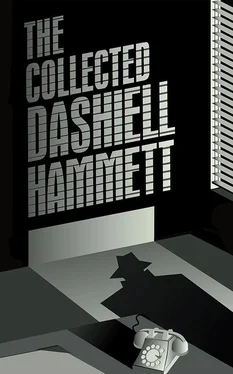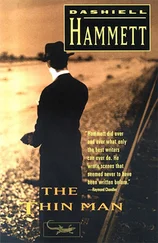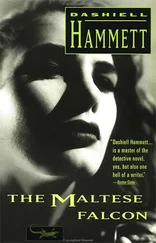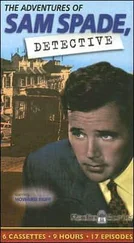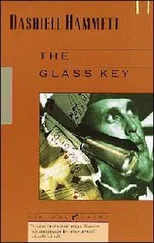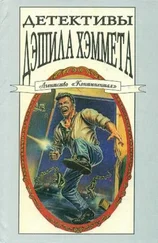...It was easier to kiss than to talk, and more satisfying. She did kiss well. Even the solemnity, with its insistence upon an equal seriousness on his part, which she brought to the business failed to mar it; though it would have been more thoroughly enjoyable without this alien reverence. She surely didn’t expect him to believe that she held these kisses, embraces, caresses, so sacred as she pretended. That was the worst side of her: she not only invested her amours with all the trappings of the theater, but she went to the amateur theater for her properties.
...There it was again. It was as if there were hidden and not very sophisticated spectators to be satisfied. A kiss wasn’t, properly, a sacrament; nor was she any more deeply stirred than he, for instance, himself. It could all have been done just as neatly and a whole lot more enjoyably without the burning glances, the shivers and sighs, the devout emotion with which she embellished it — sometimes caricatured it. He must be careful not to smile, though, not even when she reached her highest histrionic altitude; or she would sulk, and that was a nuisance. True enough, her sulkiness seldom endured for longer than it took him to light a cigarette, hut even that was sufficient to irritate him and make him feel rather sullen himself. Now and then, when a smile wouldn’t be repressed, he could hit upon the right thing to say — something without flippancy but at the same time whimsical — and pass it off; but she didn’t as a rule like trivialities of any sort when her emotions were rampant.
...That was safer: a smile before it had twisted itself into view could he buried beneath another kiss. And she did kiss well; she was undeniably delectable in spite of her gestures, her dramatics, and her italicized fervors. After all, the difference between her acting and his was only one of degree. But that made the flaw a matter of crudity, which was bad. Still—
...Funny — the similarity of women’s faces remembered in dim lights on nights like this: the same leanness of cheek, the same shininess of eye, the same deepened lines spreading from between the eyes down and out around the mouth. It was as if something — some same thing behind all of them — was looking out through their faces: some aboriginal — but that was fantastic!
...If only for a little while she would put away that posturing. This wasn’t a mass. If only— But it was possible that he was being hypercritical; it was possible that she wasn’t exaggerating so much as he thought. She was an impulsive, high-keyed little thing: she might be nearly in earnest — or even quite. Sincere or affected, she was devilishly fascinating, nevertheless.
...If only she—
...By Jove, she was glorious!
Black Mask, February 15, 1924; (aka: The Judge Laughed Last,1944)
“The trouble with this country,” Old Man Covey unexpectedly exploded, emphasizing his words with repeated beats of a gnarled forefinger on the newspaper he had been reading, “is that the courts have got a stranglehold on it! Law? There ain’t no law! There’s courts and there’s judges, and this thing you call the law is a weapon they use to choke human enterprise — to discourage originality and progress!” The portion of the morning paper upon which the old man’s assault was concentrated, I saw with difficulty, held the report of a decision of the Supreme Court in connection with some labor difficulties in the West. Old Man Covey, I knew, couldn’t be personally interested in either side of the dispute. He had as little to do with capital as with labor, which was very little. For eight years now — since the day when a street preacher had turned “Big-dog” Covey from the ways of crime, to become plain John Covey and, later, Old Man Covey — he had subsisted upon the benevolence of a son-in-law.
His interest in this case was, then, purely academic. But his attitude was undoubtedly tinged by his earlier experience with the criminal courts, which had been more than superficial, and I suspected that some especially bitter memory had engendered this outburst.
So I rolled another cigarette and led him gently along the road of argumentation — the most direct path, I had learned, to the interior of his contrary old mind.
“Being a beak,” I said, using the vernacular term for judge in an attempt to do all I could to stir up the portions of his remembrance that had to do with his days of youth and lawlessness, “is a tough job. Laws are complicated and puzzling, and it isn’t easy to straighten them out so that they fit particular cases. Most of the beaks do very well, I think.”
“You think so, do you?” the old scoundrel snarled at me. “Well, let me tell you, sonny, you don’t know a damned thing about it! I could tell you stories about beaks and their ways that would knock your eye out!”
I put all the skepticism I could summon into a smile, confident now that I had him. “You look at things from your own side,” I replied, “and in those days you were on the wrong side. Now I don’t say that judges don’t make mistakes now and then. They do. They’re only human. But I never heard of a case where you could say that a judge had positively twisted the law around to—”
That turned the trick. He cursed and snorted and glared at me, and I grinned my insincere doubts, and the story finally came out.
“Me and ‘Flogger’ Rork was on the road together some years ago, with a gun apiece and a couple big handkerchiefs to hide our mugs behind when we needed to. All-night grease-joints was our meat, and we done ourselves pretty well. We’d knock over a couple a night some nights. We’d drift into them separate at three or four in the morning, not letting on we knew each other, and stall over coffee and sinkers until we was alone with the guy behind the counter. Then we’d flash the rods on him, take what was in the damper, and slide on. No big hauls, you understand, but a steady, reliable income.
“We work that way for a few months, and then I get an idea for a new racket — and it’s a darb! Flogger — he’s an unimaginative sort of jobbie — can’t see it at first. But I keep jawing at him until he gives in and agrees to take a whirl at it.
“You never seen Flogger Rork, did you? I thought not. Well, he’s a good guy — what ‘Limey’ Pine used to call a ‘bene cove’ — but he ain’t no flower to look at. I seen a cartoon of a burglar once in a newspaper during one of these crime waves, and that’s the only time I ever seen a face like Flogger’s. A good guy — but we had to be careful how we moved around, because bulls had a habit of picking us up just on account of his face. Me — nobody hadn’t ever took me for a lamb, myself; though alongside of Flogger I look pretty sweet.
“These mugs of ours had been handicaps to us so far, but now under my new scheme we’re going to cash in on them.
“We was in the Middle West at the time. We blow into the next burg on our list, look the main drag over, and go to work. Our guns are ditched down under a pile of rocks near the jungle.
“We make a drugstore. There’s two nice little boys in it. I plant myself in front of one of them, with one hand in my coat pocket, and Flogger does the same with the other.” ‘Come through,’ we tells ’em.
“Without a squawk, one of ’em pushes down the ‘No Sale’ key of the damper, scoops out every nickel that’s in it, and passes it over to Flogger.
“ ‘Lay down behind the counter and don’t be too much in a hurry about getting up,’ we tell them next.
“They do as they’re told, and me and Flogger go on out and about our business.
“The next day we push over two more stores and move on to the next town. Every town we hit we give our new racket a couple of whirls, and it goes nice. Having an ace up our sleeves, we can take chances that otherwise would have been foolish — we can pull a couple or even three jobs a day without waiting for the rumpus from the first one to die down. “Pickings were pretty them days!
Читать дальше
